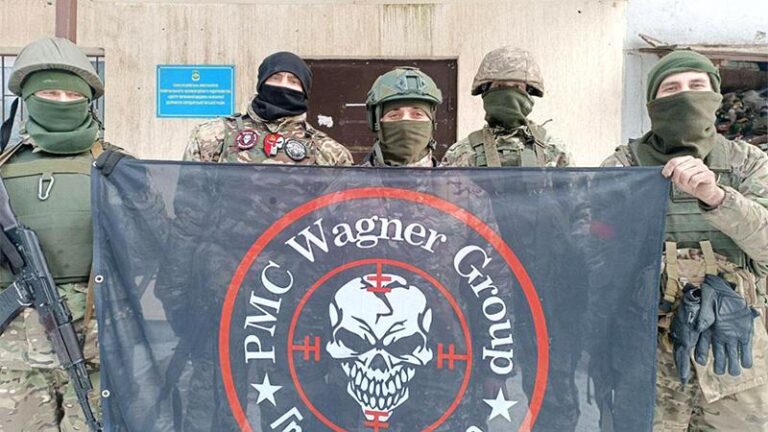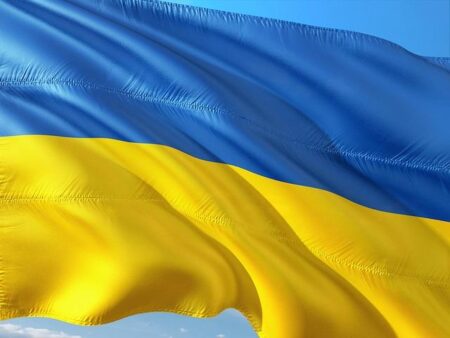Russia’s controversial Wagner mercenary group has begun withdrawing its forces from Mali, signaling a shift in the country’s volatile security landscape. Despite Wagner’s exit, the Malian government has confirmed that the African-led peacekeeping force, known as the Africa Corps, will continue its operations in the region. This development comes amid ongoing concerns over regional stability and the role of foreign actors in Mali’s prolonged conflict.
Russia’s Wagner Mercenaries Withdraw from Mali Amid Growing International Pressure
In a significant shift amid mounting international scrutiny, Russia’s notorious Wagner Group has commenced its withdrawal from Mali. The paramilitary outfit, accused of human rights abuses and implicated in destabilizing activities across several African nations, is retreating as diplomatic pressure from Western countries intensifies. The Malian government, confronting both internal challenges and external demands, has announced that while Wagner forces are exiting, a separate Russian entity known as the Africa Corps will continue its operations in the country.
Observers suggest that the withdrawal aims to mollify the international community while maintaining Russian influence in the volatile Sahel region through the Africa Corps. This move raises questions about the dynamics between official military support and clandestine mercenary activities, especially given the overlapping mandates. Below is a brief overview of Russian military presence changes in Mali:
| Russian Group | Current Status | Role in Mali |
|---|---|---|
| Wagner Group | Withdrawing | Security and combat operations (mercenaries) |
| Africa Corps | Remaining | Training and advisory support |
- International reaction: Calls for transparency and accountability continue, particularly from the UN and EU.
- Malian government stance: Seeks to balance foreign partnerships while asserting sovereignty.
- Regional impact: Uncertainty prevails over the future of counterterrorism efforts amid shifting alliances.
Africa Corps Set to Continue Operations Highlighting Shifts in Regional Security Dynamics
The withdrawal of Russia’s Wagner Group from Mali marks a significant turning point in the complex security landscape of the Sahel region. Despite Wagner mercenaries scaling back their operations, the announcement that Africa Corps will maintain its presence signals a nuanced shift rather than a simple replacement of forces. This continuity aims to sustain counterterrorism initiatives against jihadist factions operating across borders, ensuring that regional governments retain some degree of armed support amid rising instability.
Experts note several implications of Africa Corps’ ongoing involvement:
- Strategic Realignment: Local and international actors are recalibrating their security partnerships as foreign mercenaries adjust their footprints.
- Operational Focus: Africa Corps is expected to prioritize training and joint missions with Malian forces to enhance local capacity.
- Political Considerations: The continued presence reflects evolving alliances and the balancing act between sovereignty and external assistance.
| Aspect | Wagner Group | Africa Corps |
|---|---|---|
| Operation Scale | Decreasing | Stable |
| Engagement Focus | Paramilitary Combat | Training & Coordination |
| Local Reception | Controversial | Mixed but Cautious |
| International Relations | Strained | More Collaborative |
Experts Recommend Strengthening Local Forces and Enhancing International Cooperation to Stabilize Mali
As Russian Wagner mercenaries exit Mali, specialists emphasize the urgent need to empower the country’s own military and security apparatus. Mali’s local forces, though challenged by limited resources and training deficiencies, remain pivotal in ensuring long-term stability and countering insurgency threats. Experts call for increased investment in capacity building, including:
- Advanced tactical training tailored to the local landscape and security challenges.
- Improved logistical support to enhance operational reach across volatile regions.
- Community engagement programs to build trust and intelligence networks within affected populations.
In parallel, international collaboration is highlighted as essential. Strengthened partnerships between regional bodies such as ECOWAS, the African Union, and global stakeholders like the United Nations are urged. A recent comparative overview of stabilization actors in Mali outlines their respective roles and capabilities:
| Actor | Role | Key Strength |
|---|---|---|
| Malian Armed Forces | Lead ground operations and territorial defense | Deep local knowledge |
| African Union | Political mediation and peace negotiations | Regional legitimacy |
| United Nations | Peacekeeping and humanitarian assistance | Global mandate and resources |
| ECOWAS | Regional security coordination and economic support | Regional integration framework |
Experts argue this multipronged approach, balancing robust local capabilities with enhanced international cooperation, will create a sustainable framework to safeguard Mali’s security and foster long-term peace.
Final Thoughts
As Wagner’s mercenaries exit Mali, the continued presence of the Africa Corps underscores the complex and shifting landscape of foreign military involvement in the Sahel region. With security challenges persisting, the actions of both state and non-state actors will remain critical to the future stability of Mali and its neighbors. Observers will be closely monitoring how these developments impact regional dynamics and the broader international efforts to combat insurgency and maintain peace in West Africa.




